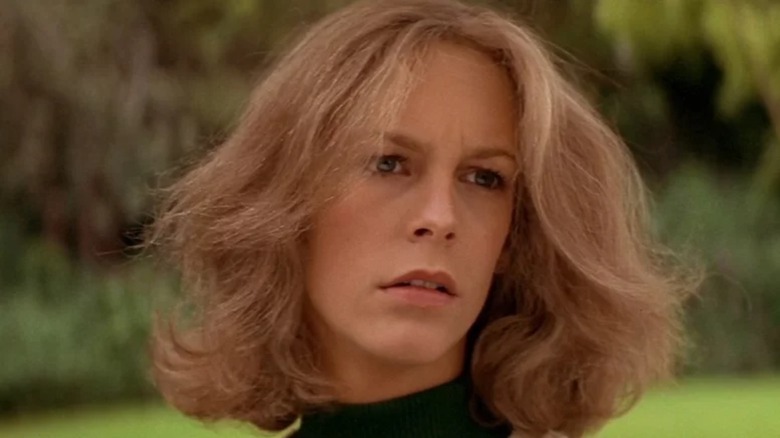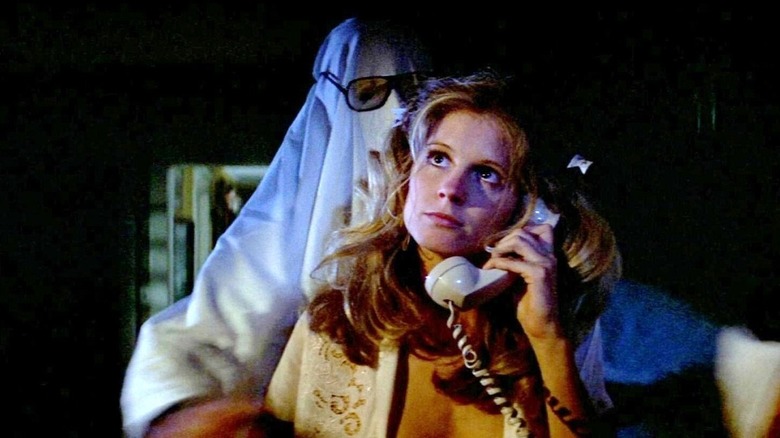The Real Reason For The 'Virginity Rule' In The Halloween Series
"A virgin lit the candle" is a recurring joke in the classic, family-friendly Halloween movie "Hocus Pocus." However, the lighthearted line has more intense implications.
The portrayal of virginity in the horror genre is often dissected by film theorists and fans who note that any character who has sex is punished, while virgins are generally protected. Film scholar Linda Williams covers this phenomenon in "Film Bodies: Gender, Genre, and Excess," saying that "the sadomasochistic teen horror films kill of the sexually active 'bad' girls, allowing only the non-sexual 'good' girls to survive."
Her studies on the "displacement of sex onto violence" can be applied to a variety of films across the horror genre. While modern films like "Cabin in the Woods" have subverted this trope, older films tend to lean into it. One of the most iconic examples of this is the 1978 slasher film "Halloween," in which the virginal Laurie Strode (Jamie Lee Curtis) embodies the ultimate Final Girl and defeats Michael Myers (Tony Moran).
However, director John Carpenter wasn't trying to fuel film discourse about sexuality. So, what was the real reason for the "virginity rule" in "Halloween"?
Theory or coincidence?
While film theory can provide challenging ways to think about certain tropes and stereotypes, sometimes it's just not that deep. Carpenter and co-writer Debra Hill have repeatedly said that they didn't set out to turn virginity into the killer's kryptonite.
Instead, they were trying to show that hormonal teenagers are often so distracted with trying to rebel and hook up that they are unaware of what's going on around them. Their priority isn't to avoid the killer — it's to get laid. Laurie, on the other hand, is shy and more concerned with her schoolwork than with dating. Her focus is what allows her to survive.
Laurie's anxiety over losing her virginity seems to be reaffirmed by Myers' killing spree that targets her sexually active peers. However, Carpenter has dismissed these interpretations, saying that it's just a horror film where the killer's main target is the most sexually frustrated character, and the weapon she uses to defeat him just happens to be a phallic symbol.
The assertion that "Halloween" isn't a moral tale is still debated by horror fans online, but Carpenter and Hill's initial intention was to show how distracted horny teenagers can be.

